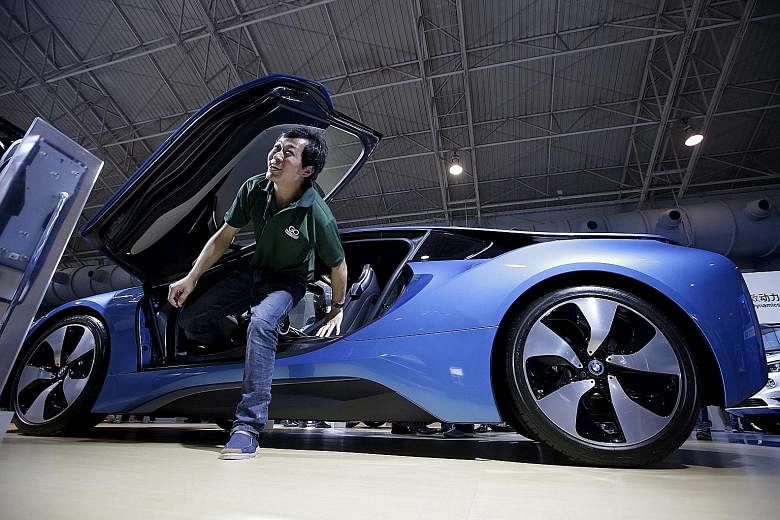BRUSSELS • United States President Donald Trump is forcing the European Union and China to decide how willing they are to set aside trade tensions that go back decades.
As Mr Trump pushes his mantra of "America First", German Chancellor Angela Merkel and Chinese President Xi Jinping are taking almost every opportunity to affirm their commitment to free trade. Just last week, they agreed on a phone call "to continue their trusting cooperation" on open markets.
The challenge, say trade officials, will be using those warm words to overcome knotty issues that have soured China-EU relations for years.
Just over a decade ago, the so-called "bra wars" highlighted European angst about cheap Chinese textiles undercutting domestic manufacturers, and tensions continue to simmer over solar power, steel and even bicycles.
Meanwhile, populist groups like Ms Marine Le Pen's National Front in France are running for election on an anti-free trade ticket.
"There are still many obstacles to cooperation," said Dr Wang Yiwei, a professor of international relations at Renmin University in Beijing and a former Chinese trade official in Europe.
"We don't look to Europe to balance the US, but we can hope that Europe might help with the kind of American unilateralism or its tendency to do whatever it pleases that we've seen in the past."
The chiming signals by Europe and China come as Mr Xi plans a visit to Berlin this year and the US sends mixed messages on its future trade policy.
On one hand, Trump adviser Steve Schwarzman said this month that the President is likely to temper his criticism of China as time goes on, and Mr Xi may be hosted at Mr Trump's Mar-a-Lago club in Florida as soon as next month.
On the other hand, both Germany and China are in the US firing line over exchange rates that the White House has said unfairly boost exports.
Mr Trump's top trade adviser, Dr Peter Navarro, has called China "the biggest trade cheater in the world" and said that the US' deficit with Germany will be among the toughest to tackle.
And after Mr Trump hosted Dr Merkel for the first time in the White House on Friday, he repeated his complaints that the US has been treated "very, very unfairly" in trade arrangements.
Fears over a Trump turn inwards may present an opening to break the impasses that have hampered EU-China relations, according to officials in Berlin, who declined to be identified. Days before Mr Trump took office, Mr Xi likened protectionism to "locking yourself in a dark room" and drew a chorus of approval led by Dr Merkel.
At a meeting of the Group of 20 finance ministers and central bank governors in Germany, which ended on Saturday, China positioned itself as a defender of the global trading system, further highlighting its common ground with the EU.
"These two major economic powers are going towards the start of talks on a free trade agreement sooner or later," said Mr Hosuk Lee-Makiyama, director of the European Centre for International Political Economy in Brussels. "We are probably talking about three to five years."
Since Mr Xi's remarks in January, however, doubts persist in Europe about China's willingness to deliver on his pledge. Europe has long been frustrated by China's exports policies - in 2005, about 75 million pieces of Chinese-made textiles were held at ports across Europe amid concerns that domestic manufacturers could not compete with cheaper imports.
More than a decade later, tensions remain. Last year, the 28 members of the EU ran a trade deficit in goods of €175 billion (S$263.7 billion) with China, while three years of talks between Brussels and Beijing to level the playing field for European companies in China have little to show.
BLOOMBERG

